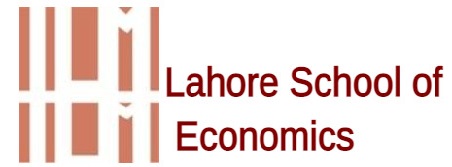
Publications
- Wadho, W., & Chaudhry, A. (2024). Measuring process innovation outputs and understanding their implications for firms: Evidence from Pakistan. Technovation. Volume. 136. (SJR Q1)
- Wadho, W, and Sadia, H. (2023). Ethnic diversity, concentration of political power and the curse of natural resources. Economia Politica 40.1: 113-137. (SJR Q1)
- Asharaf, N, Wadho, W, & Shahid, S. (2023). Faultlines in Family SMEs: The U-shape effect of family influence and control on innovativeness and performance. M@n@gement. Vol. 26 (3). (SJR Q2)
- Wadho, W., & Chaudhry, A. (2022). Innovation strategies and productivity growth in developing countries: Firm-level evidence from Pakistani manufacturers. Journal of Asian Economics. Volume 81. (SJR 2)
- Hasan, Y., & Wadho, W. (2020). Unskilled Migration, Child labor and Human Capital Accumulation of Children in the Presence of Parental Absenteeism. The Lahore Journal of Economics, 25(2), 119-138.
- Wadho, W., Goedhuys, M., & Chaudhry, A. (2019). Young innovative companies and employment creation, evidence from the Pakistani textiles sector. World Development, 117, 139-152. (SJR Q1)
- Wadho, W., & Chaudhry, A. (2019). Identifying and Understanding High Growth Firms in the Pakistani Textile and Apparel Sectors. The Lahore Journal of Economics, 24(2), 73-92.
- Wadho, W., & Chaudhry, A. (2018). Innovation and firm performance in developing countries: The case of Pakistani textile and apparel manufacturers. Research Policy, 47(7), 1283-1294. (SJR Q1)
- Wadho, W., & Ayaz, U. (2018). Government size and economic growth in an endogenous growth model with rent-seeking. Economics & Politics, 30(1), 151-179. (SJR Q2)
- Wadho, W. (2016). Corruption, tax evasion and the role of wage incentives with endogenous monitoring technology. Economic Inquiry. vol 54(1), 391-407. (SJR Q1)
- Wadho, W. (2014). Education, rent seeking and the curse of natural resources. Economics & Politics, 26(1), 128-156. (SJR Q2)
- Wadho, W. (2013). Control rights, bureaucratic corruption and the allocation of resources. European Journal of Law and Economics, 35(1), 41-59. (SJR Q2)
- Hakro, N, & Wadho, W. (2006). IMF Stabilization Programs, Policy Conduct and Macroeconomic Outcomes: A Case Study of Pakistan. Lahore Journal of Economics, 11(1).
Papers under review
- Female community-driven development and empowerment: An RCT in Pakistan (with Andreas, Muhammad Karim and Fazal Khan). Under review at Journal of Development Economics. (SJR Q1)
- Unlocking Global Markets: The Impact of International Standards Certification on Pakistani Firms’ Export Performance (with Azam Chaudhry). Under review at Journal of Development Studies. (SJR Q1)
Ongoing research
Randomized Controlled Trials (RCTs)
- Managers’ and Households’ Attitude Toward Women Working in Factories: Role Model Firms and Information Interventions in Pakistan (with Anri Sakakibara and Abu Siddique). In the field.
- Assessing the Mental Health Impacts of Structural Shift from Homes to Factories in Pakistan (with Anri Sakakibara, Abu Siddique, Michael Vlassopoulos, and Nusaiba Zakaria). In the field.
- Structural Transformation, Women's Employment, and Child Development (with Anri Sakakibara & Abu Siddique). In the field
- Structural Transformation and Marriage Market (with Abhishek Chakravarty, Anri Sakakibara & Abu Siddique). In the field.
Empirical Research
- Family control, management quality, and firm productivity in Pakistan (with Azam Chaudhry). Data analysis completed
- Analyzing the extent and nature of bureaucratic corruption in Pakistan (with Shaheen Naseer). Data analysis completed.
Policy briefs
- Naveed, A., & Wadho, W. (2018). Geography of poverty and industrial clusters in Pakistan: Some policy implications. Pakistan Poverty Alleviation Fund
- Wadho, W (2017). Innovation in the Textiles sector of Pakistan. International Growth Center
